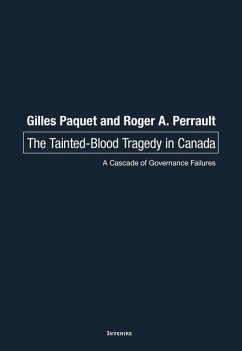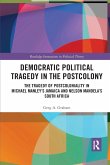Canada experienced a tainted-blood crisis in the latter part of the 20th century. It left a number of Canadians dead, and a large number incapacitated or seriously handicapped. It has been established by the court that there was no criminal negligence at the source of this event, but there were most certainly governance failures. This latter aspect of the tragedy has not received the attention it deserves. These governance failures have transformed the crisis into a tragedy, and the tragedy generated a miscarriage of justice - if justice delayed for decades may be regarded as justice denied. This book has been written by a specialist on governance, and a medical doctor and scientist, who managed the Canadian blood transfusion system for 17 years. It challenges the conventional wisdom that underpinned the four ill-founded accusations against a few persons levied by interest groups, the media, and the Office of the Solicitor General of Ontario, and it argues that the tragedy was the result of a cascade of pathologies of governance. A systemic reconstruction of the tragedy is proposed, the administrative processes that we argue were responsible for the pathologies of governance are exposed, and suggestions are made to neutralize such malefits in the future. The full-text of the judgment and reasons provided by Justice Benotto, when one of the ill-founded accusations was brought to court, is enclosed. This led the Crown to drop the other three ill-founded accusations. A postface underlines the lack of critical thinking that has allowed such a tragedy to follow its course.
Bitte wählen Sie Ihr Anliegen aus.
Rechnungen
Retourenschein anfordern
Bestellstatus
Storno








